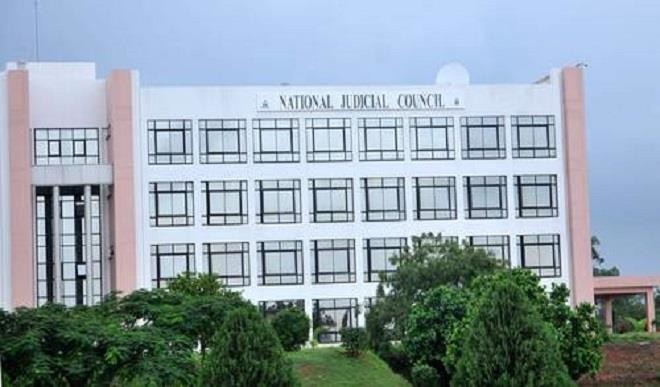CSNAC faults NJC’s claim of prompt action on petitions against judges
A non-governmental organisation, Civil Society Network Against Corruption, has faulted a claim by the National Judicial Council, asserting that it never shielded judges accused of misconduct by a way of not investigating allegations of corruption against them. In the statement issued by its Acting Director, Information, Mr. Soji Oye, recently, the NJC had said […]


A non-governmental organisation, Civil Society Network Against Corruption, has faulted a claim by the National Judicial Council, asserting that it never shielded judges accused of misconduct by a way of not investigating allegations of corruption against them.
In the statement issued by its Acting Director, Information, Mr. Soji Oye, recently, the NJC had said it had just two pending petitions against two of the seven arrested judges.
Reacting to the statement by the NJC, the chairman of the anti-graft group, Mr. Olanrewaju Suraju, said in a petition to the NJC that the disciplinary measures meted out to some erring judges has cast serious doubt on the expressed commitment of the council to restore public confidence in the country’s judiciary.
The petition read: “Contrary to such claim, CSNAC wishes to state that the deliberate refusal of the NJC to investigate and sanction judges accused of corruption, abuse of office and other acts of misconduct by members of the public has encouraged judicial corruption in the country. Corruption and impunity is
endemic in Nigeria’s judicial system.
“In other words, the outright failure of the judiciary to purge the Nigerian judicial system of corrupt practices has eroded public confidence in the judiciary.
Indeed, the disciplinary measures meted out to some erring judges has cast serious doubt on the expressed commitment of the NJC to restore public confidence in the country’s judiciary.
“The claim of the NJC that it is committed to the anti corruption policy of the Muhammadu Buhari Administration flies in the face of the granting of frivolous injunctions issued by judges which have frustrated the investigation and prosecution of politically exposed persons and people accused of corruption. In several other cases, judges involved in the trial of corruption cases as well as the appellate
courts have granted stay of proceedings to stall the prosecution of corrupt people
in the society. “Apart from the case of Justice Mohammed Yunusa who was recently recommended for retirement by the NJC, no other judge has been sanctioned by the NJC for frustrating the fight against corruption. Even in the case of Justice Yunusa the NJC failed to act until the Civil Society Network Against Corruption (CSNAC) had to compile seven cases in which the judge granted perpetual injunction to restrain the EFCC, ICPC and the offices of the Inspector-General of Police and Attorney-General of the Federation from prosecuting some persons accused of criminal diversion of billions of naira.”
While highlighting over 10 petitions forwarded to it against the misconducts of judicial officers, CSNAC queried why the NJC decided not to investigate and sanction judges alleged of judicial corruption in the petitions.
